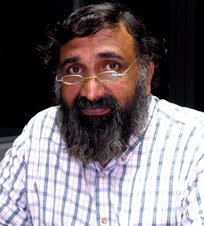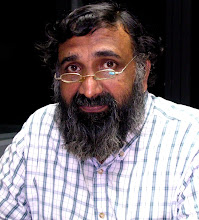There are indications that the government is again trying to bring software patents, possibly covertly. The first indication of this has been in the draft Manual of Patent Practice and Procedure published by the Patent Office, India, in which they talk about "software per se" and software in association with hardware. This was repeated in the meeting held in Mumbai which was a consultation organised by the government with the public. Whether this move has been engineered by the bureaucracy or by the government under pressure from big corporates, this is not good for the software industry, especially the small scale sector, in India.
Copyright laws and patent laws were created to benefit society from the work of creative individuals. While copyright prevents publication of a creative work by others without the permission of the copyright holder (who may be the creator or someone to whom the creator has assigned the right), patent prevents the implementation of an idea that is innovative and not copied from an existing thing. The creator keeps the right for a definite period. In the case of copyright, its use has been manipulated so that now it is the publishing company that holds the right and that too for several decades after the death of the original creator. Moreover, in today's world with digital technology that can deliver any document to any number of people anywhere in the world at very little cost, copyright law often reduces the benefit to society rather than increase it. Thus, the copyright law has virtually outlived its purpose. It may be argued that patent laws still have some purpose since it helps an inventor to document and publish details of his/her invention without fear of someone taking away the benefits that he would have reaped. Even here, it is often publicly funded research that leads to innovation today, and this does not need to be patented. In fact, such innovation should not be restricted through patents.
But, in the case of software, patents are a greater danger. As Stallman wrote, "Software patents are the software project equivalent of land mines: each design decision carries a risk of stepping on a patent, which can destroy your project." (http://www.gnu.org/philosophy/fighting-software-patents.html). This is so because of two main reasons: i) software patents cover general ideas, not specific implementations, so that it becomes impossible for another programmer to implement that idea even differently; and ii) the patent applications are usually written in vague terms so that a good lawyer would be able to argue even against something very different though remotely similar. This drastically affects any programmer.
A reasonably complex computer program could contain hundreds, if not thousands, of ideas, and it would be virtually impossible for a programmer to avoid all patented ideas even if he is aware of all such patents. Often, it is virtually impossible to be even aware of all patented ideas. This is because so many patents have already been granted in the only country that supports software patents--namely, the United States of America--that it is practically impossible to keep track of all of them. And they continue to issue patents on the order of thousands every year. Keeping track of all of them, especially in view of the vagueness in their wording, is just impossible.
One argument often raised in support of software patent is that the WTO requires it. This is highly misleading. WTO covers software under copyright, and there is no place for patents there. It would appear that the interested parties raise this argument deliberately to mislead others. It should be remembered that a law to amend the patent act to include software under it had been discussed in the parliament a couple of years earlier and the parliament had rejected it outright. It is in this context that the government is trying to bring it surreptitiously through the manual, which says that software in association with hardware can be patented. Obviously, software independently can do nothing, and requires hardware for it to function. Thus, this argument is simply to pull wool over the eyes of the unsuspecting. Unfortunately, the smaller software companies in India seem to believe that they can benefit from software patents.
The consequence of all this is that small developers and small software companies will suffer the results of permitting software patents. Large software companies have large numbers of patents and thus, like large nuclear powers, refrain from using these against each other. They have a tacit understanding that none of them will file for patent violation against another. But they need not have such fear against any small software company. They can sue a company to its death. Particularly in the case of Free Software, software patents can cause a lot of problems. Because of all this, let all of us together say "NO" to software patents.
Wednesday, August 20, 2008
Subscribe to:
Post Comments (Atom)


No comments:
Post a Comment